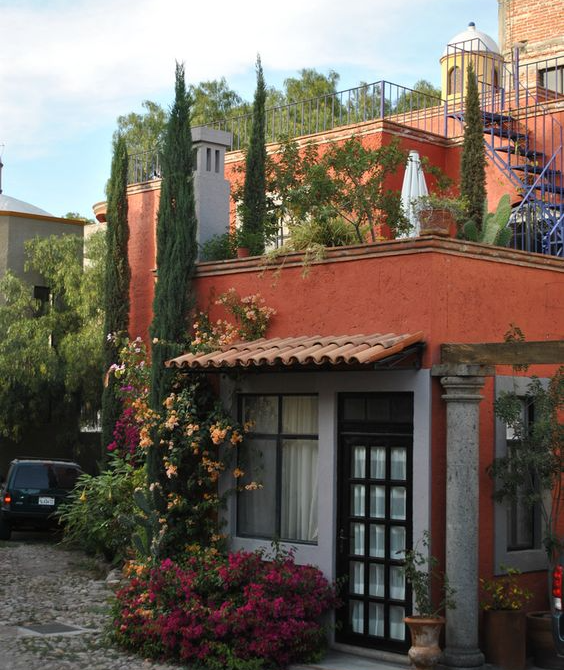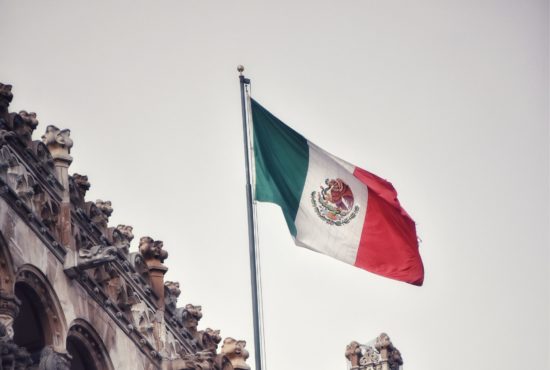Capital gains tax calculations are normally calculated by Notary Publics here in San Miguel de Allende and in Mexico generally. The calculations are complicated as they not only consider the price the property was bought and sold for but also, improvement costs paid, whether you have receipts for the improvement payments, when the property was bought, what the peso to dollar exchange is and was on the date of the purchase, and other factors. While the SRE Permit you must obtain as a foreigner in order to purchase a property in San Miguel requires you to be treated like you are a Mexican citizen with respect to your ownership of the property, an expat will not be treated exactly the same as a Mexican citizen when they wish to obtain capital gains tax exemptions
The capital gains tax exemption value changes from year to year but it can be worth upwards of approximately $200,000 USD (in pesos) for each name on the deed who qualify*. Note, the tax exemption does not apply to undeveloped land and lots regardless of your immigration status.
For Mexican nationals, qualifying for the exemption requires proof that they have been issued an RFC number by the Mexican Federal tax authorities. This number essentially verifies that the person is registered with the Mexican tax system (SAT); the Mexican equivalent to the IRS in the United States.
For expats however, qualifying for the capital gains exemption requires that they can prove all three of the following*.
- They hold either a temporary or permanent immigration status (including possession of temporary or permanent cards).
- They have been issued an RFC number by the Mexican Federal tax authorities.
- The property being sold is their primary residence.
An expat that cannot prove all three of these criteria will not be entitled to this ample tax exemption and will face a capital gains tax rate of more than 30%.
Obtaining RFC numbers has recently become more difficult and time consuming than in the past. It now requires an appointment be made at an SAT office and an in-person application. Obtaining both temporary or permanent immigration visas (and turning the visa into immigration cards) also is time consuming. So, some planning is needed before putting your house for sale if you want to claim the tax exemption. We can help you in these processes.
Under current Mexican law, this tax exemption can be utilized once every three years. You don’t have to wait three years to use the exemption the first time but once used, you must wait another three years to claim it again.
When we take our selling clients to determine what their capital tax liability will be, we ask the Notary to assume a range of hypothetical sales prices in advance so that the client has a clear idea of what their tax will be, or if they will be subject to a tax at all.
It is very important that you use an attorney or a professional agent to help you determine that you do meet the required criteria and determine what your capital gains tax will be before you list your property or have offers to purchase. Scrambling to lower or eliminate your tax after you are in contract to sell can create big problems that can easily be avoided.
*As of the date of this article this is the approximate manner that the exemption is calculated, and criteria required of expats. The tax exemption law changes regularly so you must check when you are thinking of selling to know exactly what the exemption can save you.
Jeff Kimmel is a lawyer and a member of the California bar since 1980. He became a partner of the Mexican law firm PORTILLA, RUY-DIAZ Y AGUILAR in 2017 (https://www.portilla.com.mx/attorneys). He is a licensed Mexican real estate broker in Guanajuato. He started KIMMEL REALTY GROUP in San Miguel de Allende in 2021 with the mission to help its clients take the risk out of buying real estate in Mexico (https://www.krgsanmiguel.com/).
© 2022 Jeff Kimmel DBA KIMMEL REALTY GROUP all rights reserved.
Use by others requires prior written permission.






